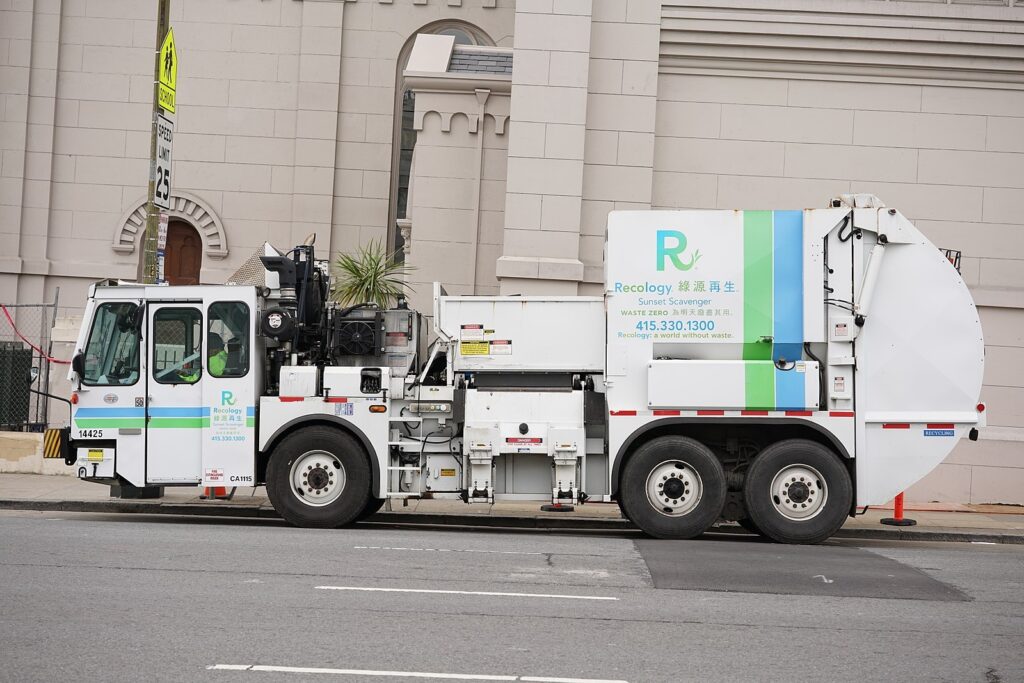Recology, our local refuse monopoly, has had complete control over garbage and recycling in the city since 1932. The contract has never been put out to bid. The way that rates were set for decades has become a huge political scandal.
But there’s a little bit of a loophole in that deal: Nobody can challenge Recology for the right to collect from homes and businesses—but there’s nothing in the City Charter about the city itself.
That is: The contract to collect waste from City Hall and all other public agencies and places isn’t guaranteed. The city can put that out to bid.

And the city’s Office of Contract Administration plans to do that, this summer.
According to a June 16 memo from the Office of Contracts Administration, the city is preparing a Request for Proposals but “The award of a new contract following competitive solicitation is expected to take approximately 18-20 months, including completion of the solicitation and all City-required processes.”
Realistically, it’s going to be hard for a competitor to come in and collect just refuse from city agencies, and recycle and compost some of it and dispose of the rest in a landfill, particularly since Recology owns the landfill that the city uses. But at the very least, a competitive bidding process will almost certainly force Recology to come in with a better deal that the city currently gets.
The Government Audit and Oversight Committee will hear a proposal Thursday to extend the current Recology contract until 2024, for a total increase of $23.9 million. Everyone agrees the supes have to approve this, since somebody’s got to pick up the trash.
But maybe two years from now the price tag will be lower.
Speaking of crooked monopolies: Gov. Gavin Newsom’s administration quietly agreed in January to approve a safety certificate for Pacific Gas and Electric Co., allowing a utility that has been responsible for massive fires, property destruction, and death to keep operating with impunity.
He did that despite signing a bill two years ago that would allow the state to take over and put PG&E in receivership, saying that there would be “no more business as usual.”
The company, a federal judge noted
has gone on a crime spree – setting at least 31 wildfires, burning nearly 1.5 million acres, destroying nearly 24,000 structures and killing 113 Californians – and will emerge from probation as a continuing menace to California.
Sups. Connie Chan and Shamann Walton want to know why Newsom isn’t holding PG&E accountable, and have introduced a resolution calling on the governor to withdraw the safety certificate, meaning PG&E would be unable to operate in the state.
That would be a chance for statewide public power; in one scenario, the state could simply break up the company and transfer its parts to existing or new local power agencies. (San Francisco has already offered to buy the company’s local system for $2.5 billion, which is 25 percent of the company’s entire market capitalization as of today.)
That resolution also comes up at GAO Thursday.
The Board of Supes has unanimously approved using the Compassionate Emergency Response Team approach to replace police officers in responding to most calls involving homeless people. But the cops are still rousting homeless people, and Sup. Myrna Melgar has asked for a hearing on when and how CART will be fully implemented, and that’s also on the GAO agenda.
No full board meeting this week, but between Rules and GAO, there’s plenty going on.





